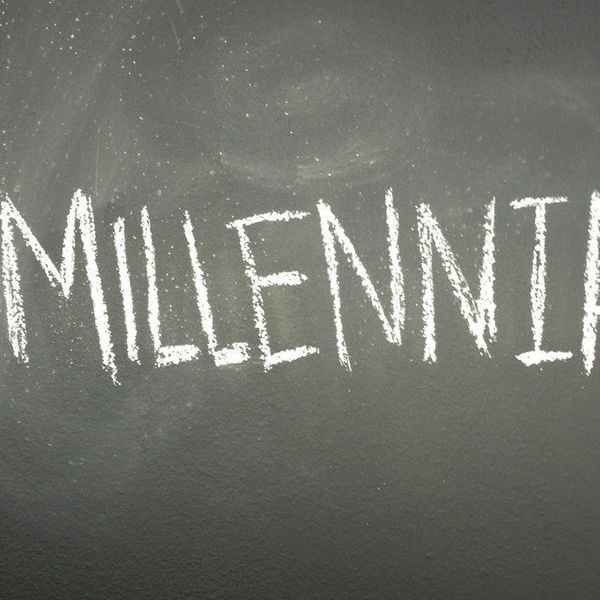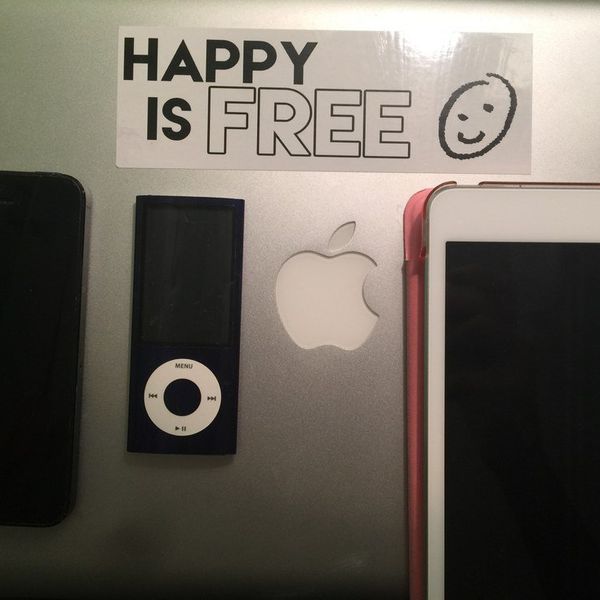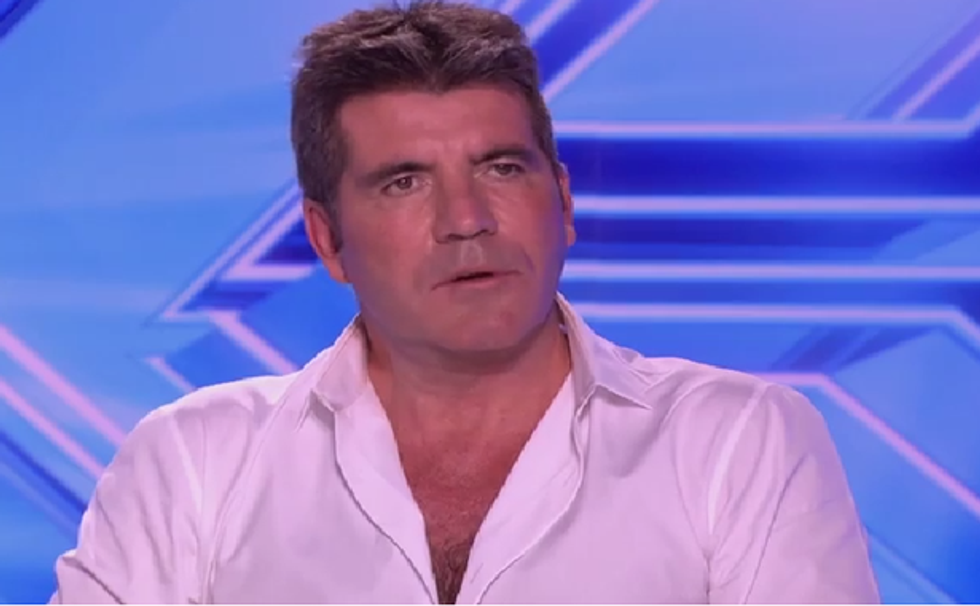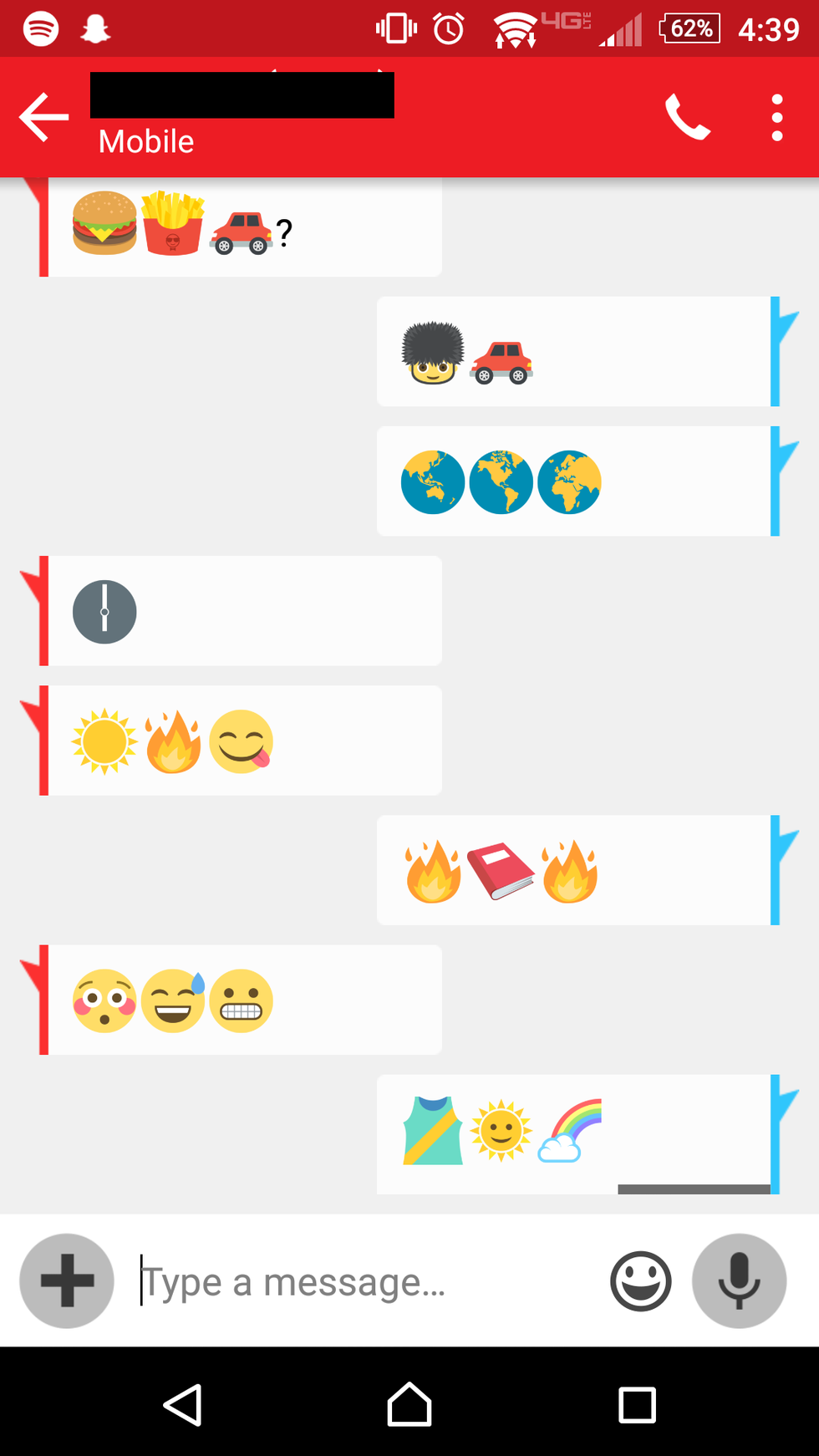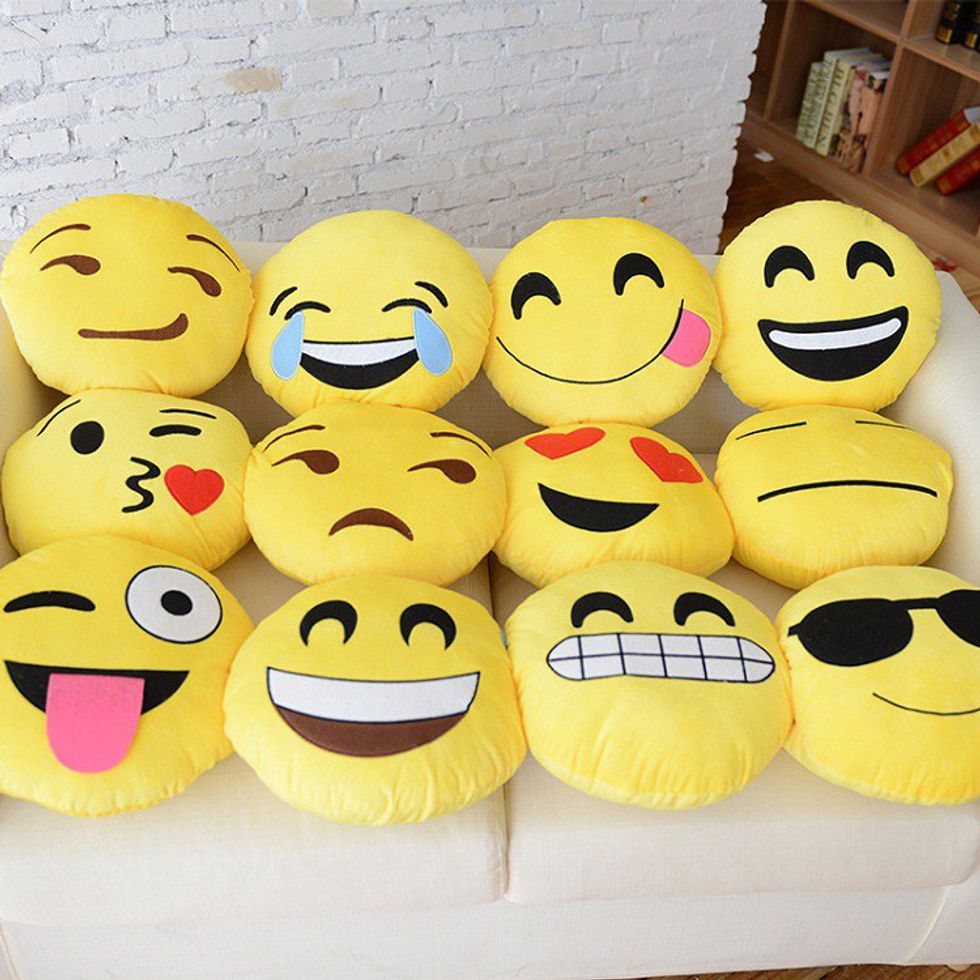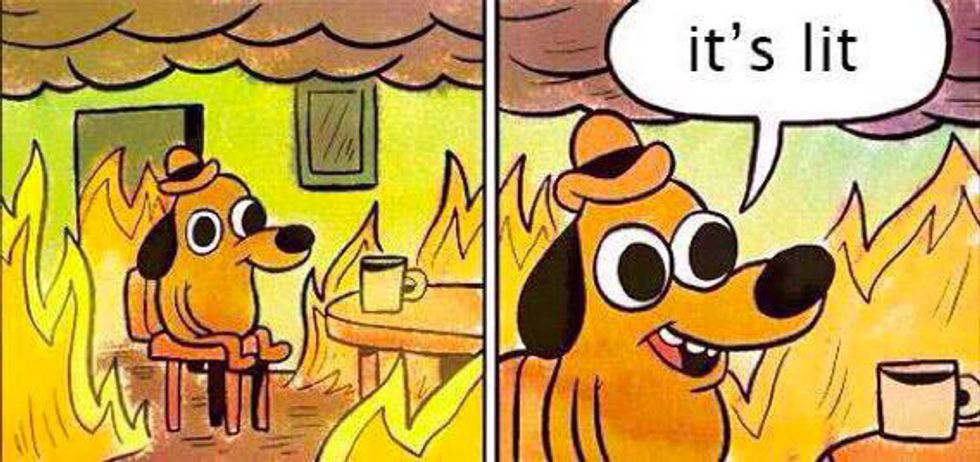Each generation has a kind of theme that characterizes the way that they communicate with others, whether it be within their generation or anyone else. For example, it seems that all Baby Boomers lost something in 'Nam and Generation X did everything that we can do, but they did it walking uphill both ways in snow whilst barefoot.
"At your age, I earned enough at the gas station to pay for college, a car and this guilt trip."
However, the Millennial Generation can, at times, be harder to understand because the language seems to be constantly evolving. There is no need to fear this way of communicating, though. As an insider to the generation, I offer to you, the Rosetta Stone:
We speak heavily in abbreviation and acronyms
This type of communication is seen heavily on college campuses. At college, the way to prove that you are a seasoned veteran of campus is to abbreviate nearly every building and area of it that you can. In fact, saying the least amount of syllables as possible when describing somewhere on campus is seen as putting yourself into a position of higher prestige than your underclassmen peers. Here at Kalamazoo College (aka, K) we have the Fine Arts Building affectionately referred to as "The FAB" and the library, of course, as "The Lib". We are professional Millennials here at K.
Furthermore, as communication technology has advanced, Snapchat has become a paradigm. On Snapchat people have the ability to take pictures of things, add captions and send them. However, the number of characters is limited to what fits across the picture, forcing people to innovate further and come up with shorter ways to say something. This, combined with the already-shortened language of texting, was a recipe for even smaller forms of common words. This includes the transformation of the word "very" into simply "v" and "pretty" (used in the same way as "very") into "p".
How much further can they go with this? They've already hit one letter...
When communicating with a Millennial and you hear a word that you don't understand, know that some words may just be pieces of other words or the initials of a series of them.
Digital conversations can be entirely made of emojis and memes/gifs
It's a well known phrase that history will repeat itself if we don't learn from it. If you happened to look at a teenager's texts or chats these days, you would find them ridden with what seems to be the modern equivalent of hieroglyphs. They may even outnumber words in any given conversation. This is an extension of shortening in messages that was previously mentioned. You see, Millennials found that a feeling or situation could be represented in a small picture of a face, a hand making a certain shape or even a pile of poop with a smile on it. This rapidly grew in popularity as it became a keyboard on every smartphone on the market and spread like 🔥🔥🔥.
This is the plague that emojis have wrought.
Additionally, you may also find that a lot of pictures or gifs are used between the plethora of emojis and minimal amount of words. The internet allows for people to share their favorite shows/movies while making funny pictures referencing them. Plus, other random pictures and videos can also become extremely popular on the Internet and become a "meme". As both emojis and memes have become more entrenched in communication, they have even been integrated together, so as to be efficient in expressing an idea and making a meme what some people call "dank".
And then by some twist of fate they leaked into the real world.
Don't even try to learn the new terms and phrases
Just like that term "dank" that I referenced in terms of memes, there are many terms that seem to come out of nowhere. Unless you are around people that use the word a lot, you will have to put an effort into actually learning what it means because - and know this to be true - they mean nothing and everything at the same time. For example, the new term "lit" can be used in any situation where something is cool, good, trendy, exciting and anything like that. A party can be lit, a deal on snacks at Meijer can be lit and a person can be lit if they're intoxicated or elated in some way. The uses are diverse and I've even heard it being used to transform quotes like, "Are you turtly enough for the turtle club" being turned into "Are you lit enough for the lit club?" (™ Maison S.).
"Oh, I get it!" No you don't, nobody does...
Additionally, these terms come in and out of existence frequently, making it very impractical to try to learn a new word because it will be considered outdated in a matter of months. Take "Y.O.L.O" for example. It lived and thrived in the tweets, life mottos and snap backs of many people who wanted to keep up with the trends. Now, mentioning it is the equivalent to comparing Myspace and Facebook unless it's used ironically.
As you can see, the Millennial language is diverse and complex. Technology has allowed us to advance far past our predecessors in creating new ways to communicate while also creating a system that makes little to no sense to everybody else. But with his Rosetta Stone, you will be only slightly more prepared to translate for those who don't understand this language, which will become much more important when a president is giving their State of the Union Address in emojis and acronyms.

